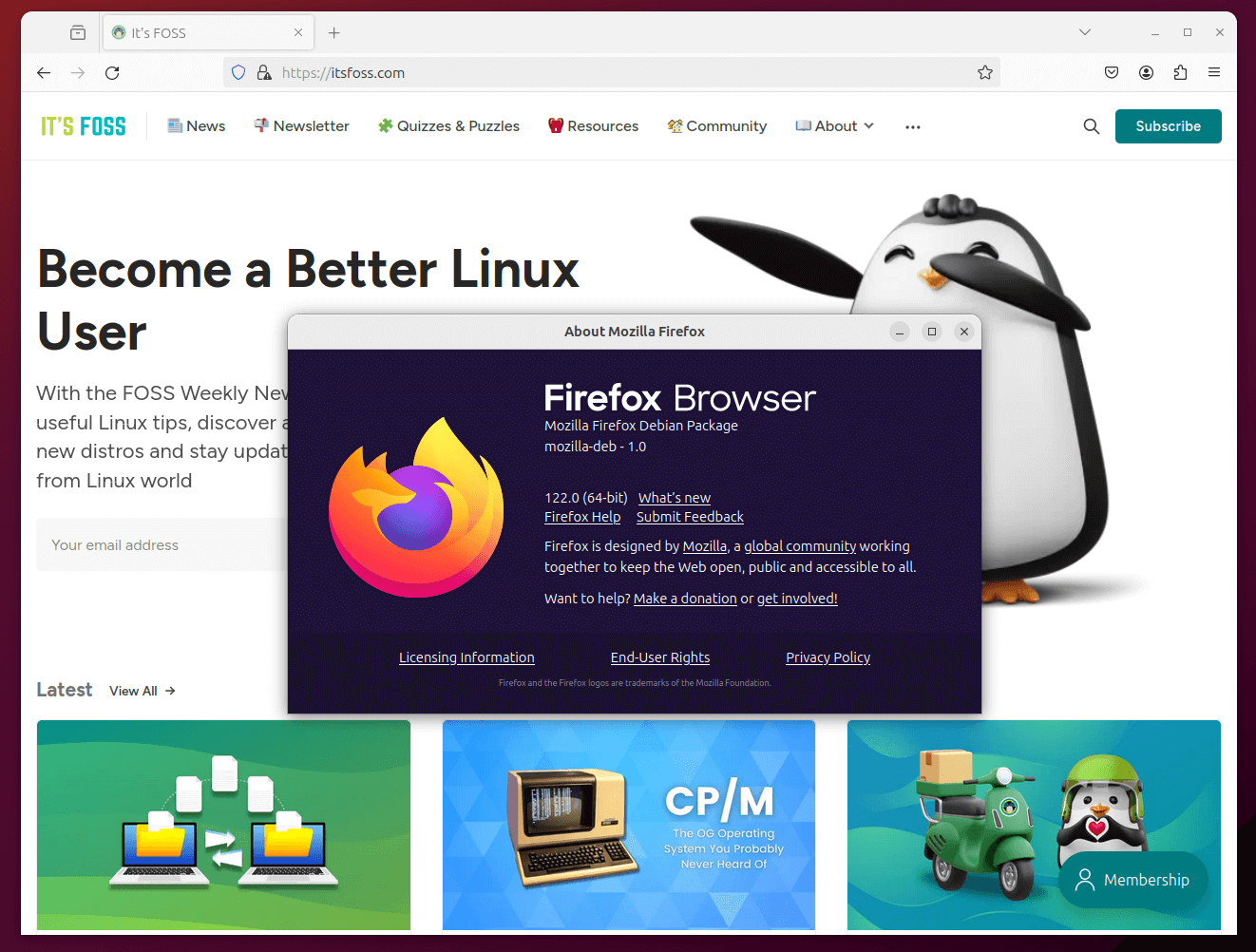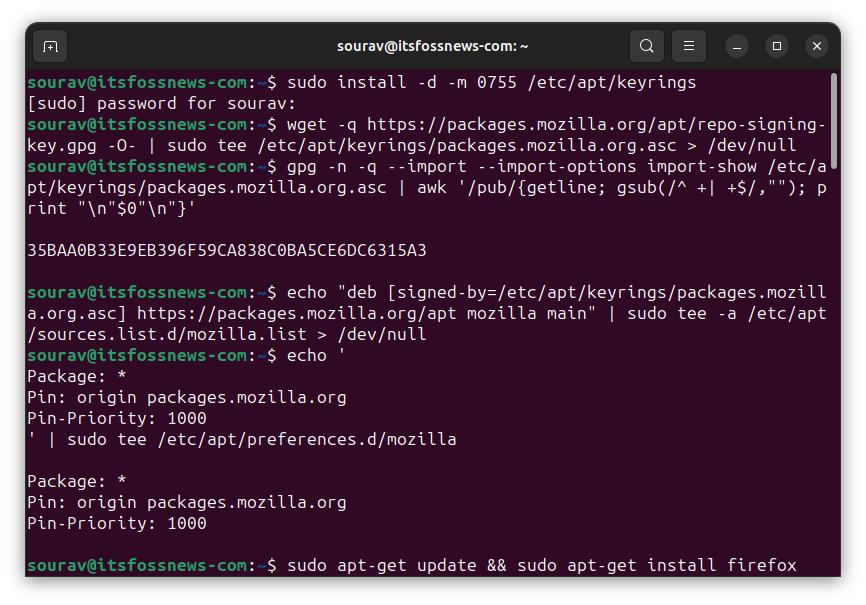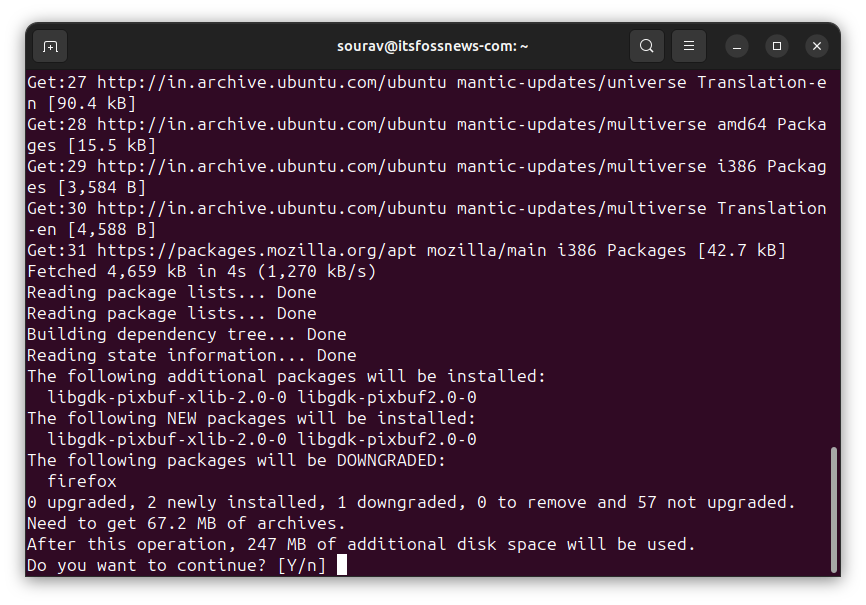
I come bearing some good news! Mozilla has introduced a new .deb package for Firefox that is meant for Ubuntu, Debian, and other Debian-based distros.
You can now switch from other package formats (or the snap package) that's been bothering you with its slow launches. So, join me as I take you through this, and show you how to install it on your Linux system.
Suggested Read 📖

Firefox .deb Package: What to Expect?

Built from the ground up by Mozilla, the new Linux package is all set to give users a native .deb package, similar to Snap or Flatpak that just works out of the box.
All the .deb packages for Firefox that were available before this were maintained by individuals and organizations that weren't associated with Mozilla. But, we finally have an official one.
On the release, Mozilla added:
For more than 25 years, Mozilla has built a reputation for building free and open-source web browsers. Because the Firefox browser is open-source, we know Firefox inside and out, including how to get the best from it.
While Firefox is already performance-focused, the deb package should help you make the most out of the optimizations done under-the-hood.
You're maybe wondering; what about updates?
Well, Mozilla has introduced a new APT repository that is in sync with the Firefox release process. So, you will receive updates whenever there's a new one, and you just have to restart Firefox to apply them.

Handy, ain't it? I like what they have done with this, I am now considering switching to the .deb package from the Flatpak that I have installed now, but that's just me.
How to Install the Official .deb of Firefox?
To install the latest .deb release from Mozilla, you can refer to the steps shown below on your Ubuntu, Debian or other Debian-based system.
If you have the Snap version of Firefox installed, then you can run the following commands to remove it completely from your system:
sudo snap disable firefoxsudo snap remove --purge firefoxNext, we create a directory for storing the APT repo keys by running the following command:
sudo install -d -m 0755 /etc/apt/keyringsNow, import the Mozilla APT repo signing key:
wget -q https://packages.mozilla.org/apt/repo-signing-key.gpg -O- | sudo tee /etc/apt/keyrings/packages.mozilla.org.asc > /dev/nullThen, you have to run the following command:
gpg -n -q --import --import-options import-show /etc/apt/keyrings/packages.mozilla.org.asc | awk '/pub/{getline; gsub(/^ +| +$/,""); print "\n"$0"\n"}'Ensure that the fingerprint matches this after the command is run:
35BAA0B33E9EB396F59CA838C0BA5CE6DC6315A3
Thereafter, you have to add the Mozilla APT repo to your sources list:
echo "deb [signed-by=/etc/apt/keyrings/packages.mozilla.org.asc] https://packages.mozilla.org/apt mozilla main" | sudo tee -a /etc/apt/sources.list.d/mozilla.list > /dev/nullNext, you have to set up APT to prioritize packages from the Mozilla repo:
echo '
Package: *
Pin: origin packages.mozilla.org
Pin-Priority: 1000
' | sudo tee /etc/apt/preferences.d/mozillaAnd, finally, run the following command and confirm the installation by entering “Y” when prompted:
sudo apt update && sudo apt install firefox
That's it, you have now successfully installed the official .deb package of Firefox on your Linux system!
This is the final step that I mentioned earlier, you just have to type “Y” and the installation should continue, with Firefox being installed onto your system by the end of it.

There is also a way to install different language packs for Firefox, I highly suggest you go through the official documentation for that.
💬 Would you go for the official .deb package over Snap or Flatpak? Let us know below!
- Even the biggest players in the Linux world don't care about desktop Linux users. We do.
- We don't put informational content behind paywall. Your support keeps it open for everyone. Think of it like 'pay it forward'.
- Don't like ads? With the Plus membership, you get an ad-free reading experience.
- When millions of AI-generated content is being published daily, you read and learn from real human Linux users.
- It costs just $2 a month, less than the cost of your favorite burger.
Become a Plus Member today and join over 300 people in supporting our work.











